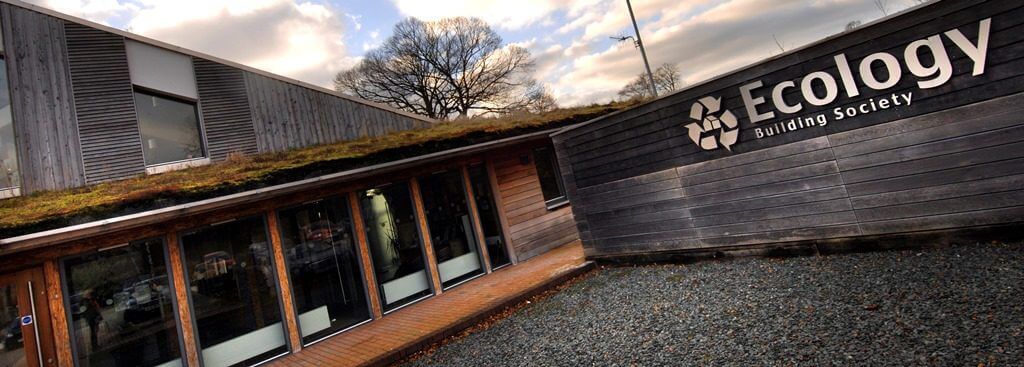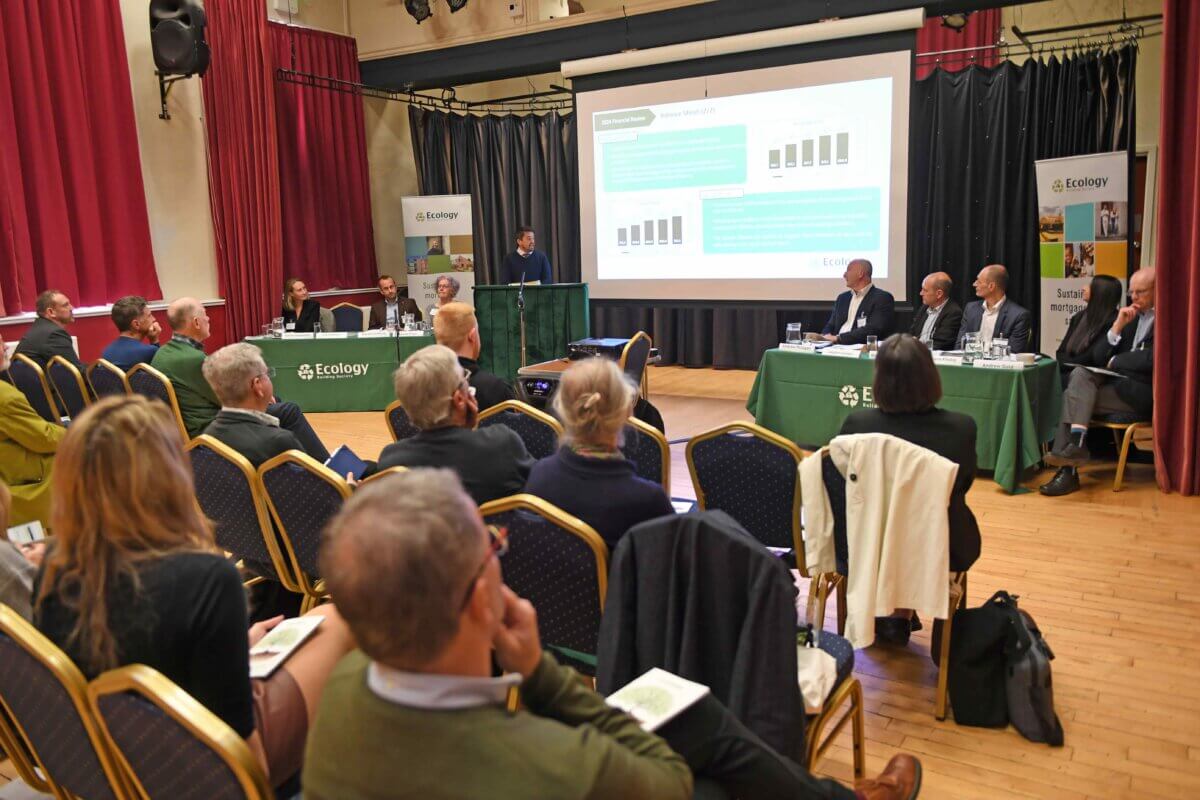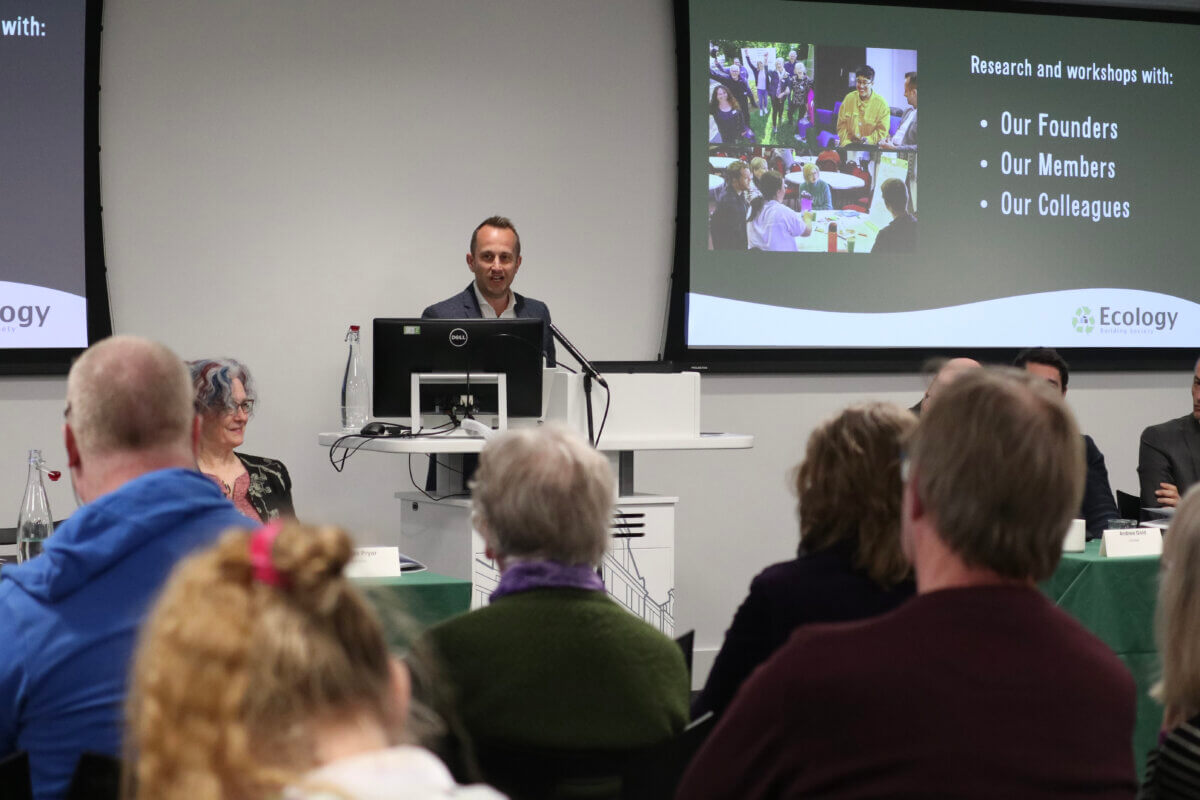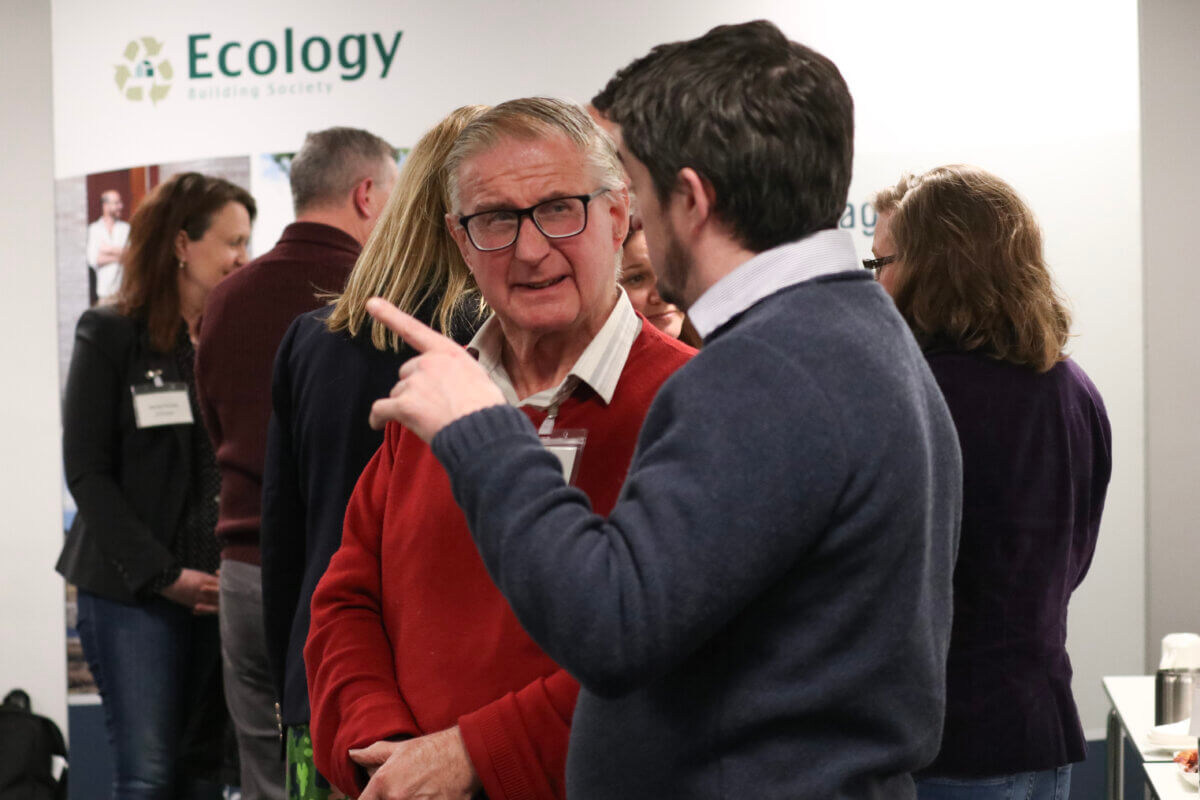Ecology Building Society Annual General Meeting 2013

This year our AGM took place in the vibrant community space of Headingley Enterprise and Arts Centre (HEART), Leeds. The morning kicked off with the formal AGM business – voting on our 2013 resolutions and our Ask the Directors session – followed by an afternoon of lively debate on the democratisation of finance.
The morning gave members and guests the chance to approach the Board with questions regarding Ecology and wider sustainability issues. We explored a range of topics including Ecology’s responsibility to educate its members about social and environmental concerns; green investment, energy cooperatives and the use of KPMG as Ecology’s auditors.
We also heard from retiring Non-Executive Director, Mark Jones, who is stepping down from his role at Ecology to devote more time to his organic smallholding. We wish Mark all the best and give our grateful thanks for all the time and energy he has put in to Ecology over the past five years.
Your Feedback
Thank you to everyone who gave feedback on the Conference. We read every form and your suggestions will be used to help us make next year’s event even better. You can download a summary of your feedback here.
The voting results from the AGM were:
| Ordinary Resolutions | For | % | Against | Abstentions | |
|---|---|---|---|---|---|
| 1 | To receive the Auditors' Report | 1,271 | 96.43 | 22 | 25 |
| 2 | To receive the Directors' Report and Annual Accounts for the year ended 31 December 2012 | 1,280 | 97.12 | 20 | 18 |
| 3 | To appoint KPMG as auditors until the conclusion of the next Annual General Meeting | 1,118 | 84.83 | 133 | 67 |
| 4 | To approve the Directors' Remuneration Report for the year ended 31 December 2012 | 1,209 | 91.73 | 64 | 45 |
| Election / Re-election of Directors: | |||||
| 5(i) | To elect Helen Ashley Taylor | 1,257 | 95.37 | 35 | 25 |
| 5(ii) | To re-elect Paul Ellis | 1,243 | 94.31 | 41 | 33 |
| 5(iii) | To re-elect Tony Taylor | 1,219 | 92.49 | 50 | 48 |
| 5(iv) | To re-elect Pam Waring | 1,245 | 94.46 | 43 | 29 |
There was one spoilt vote relating to votes cast for the Election / Re-election of Directors.
Overall turnout was up this year at 18.2% of members. 511 votes were cast online and 759 via post, generating a donation of over £350 to our nominated charity, Practical Action.
Democratic debate: outlining a vision for a better banking future
Our afternoon began with a talk from Bruce Davis Managing Director of Abundance. Bruce’s inspiring presentation exposed the shortcomings of our current financial system and the need for growth in socially and environmentally responsible investment. Bruce drew attention to society’s current tendency towards wilful ignorance when it comes to thinking about our money and the wider influence it exerts: it can be all too easy to pay our cash into our chosen bank each month, without questioning how it is then used by financial organisations – often for purposes we would never knowingly endorse. His speech urged that we free our minds when thinking about money and abandon the notion that ‘greed is good’: greed can only ever be good for the greedy. Bruce explained how Abundance offers an alternative to the current system through re-forging the connection between individuals and their money, enabling investment in transparent, ethical renewable-energy projects.
Our afternoon session exploring The big picture started with a presentation from Ecology’s Chief Executive Paul Ellis. Paul gave us an overview of what’s gone wrong with finance over the past 12 months, picking out key examples of crises and scandals that have occurred within mainstream banking and outlining the fundamental flaws in our attitudes to money that have enabled such widespread irresponsibility within the financial sector. Paul pointed to the increasing acceptance of the ‘profit at any cost’ dogma as an illustration of these impaired attitudes.
Next were our member discussion groups, which examined the question of who controls money in the current system and the impact this has on people and the planet. Lively and impassioned debate followed! It was suggested that those in control of money include land-owners, multi-nationals, banks, pharmaceutical companies, regulators and individuals. Proposed repercussions of this control structure ranged from increasing poverty and disempowerment of the individual, to climate change and over-emphasis on the value of money.
Laura Willoughby then gave a compelling overview of alternatives to mainstream banking. Laura is Chief Executive at Move Your Money, a campaign triggered by the economic crisis, which encourages individuals to direct their money away from unethical banks and into smaller, more sustainable financial institutions. Laura explained that this is no mean feat, with people in the UK being some of the least likely in Europe to move their money. This reluctance can be attributed to a variety of factors, including a belief that large banks are safer and the perception that moving banks is hard. Laura encouraged us to recognise the power that our money has and to start talking more openly with friends and family about our own banking.
Later in the afternoon, we moved on to consider The future of finance. Rob Harrison of Ethical Consumer highlighted the importance of channelling our money according to our values. Rob invited us to imagine a future in which 85% of the market is inhabited by sustainable financial organisations, like Ecology, and the remaining 15% by the ‘big banks’. Rob argued that the key to achieving this vision is to pressure our existing large organisations into a more ethical way of operating, rather than abandon them entirely.
The next round of member discussions began by considering how we would like the financial system to look by 2030. “Socially useful”, “fair” and “responsible” were some popular suggestions, along with more specific ideas including a steady-state economic model, mutualisation of failed banks and introduction of a basic citizens’ income. Focus then turned to what communities and individuals can do to make this future a reality. Ideas that received unanimous support were the transition from short-term to long-term thinking, investment in local economies, support of local currencies and accepting our individual responsibility to educate ourselves about the financial system and what our money is funding.
During the afternoon, we also heard from John Preston of the Hollybush Conservation Centre and Paul Chatterton of LILAC (Low Impact Living Affordable Community) who explained how their projects promote sustainability and community engagement in Leeds, giving members an insight into the wider ways in which Ecology supports our ‘mutual friends’.



